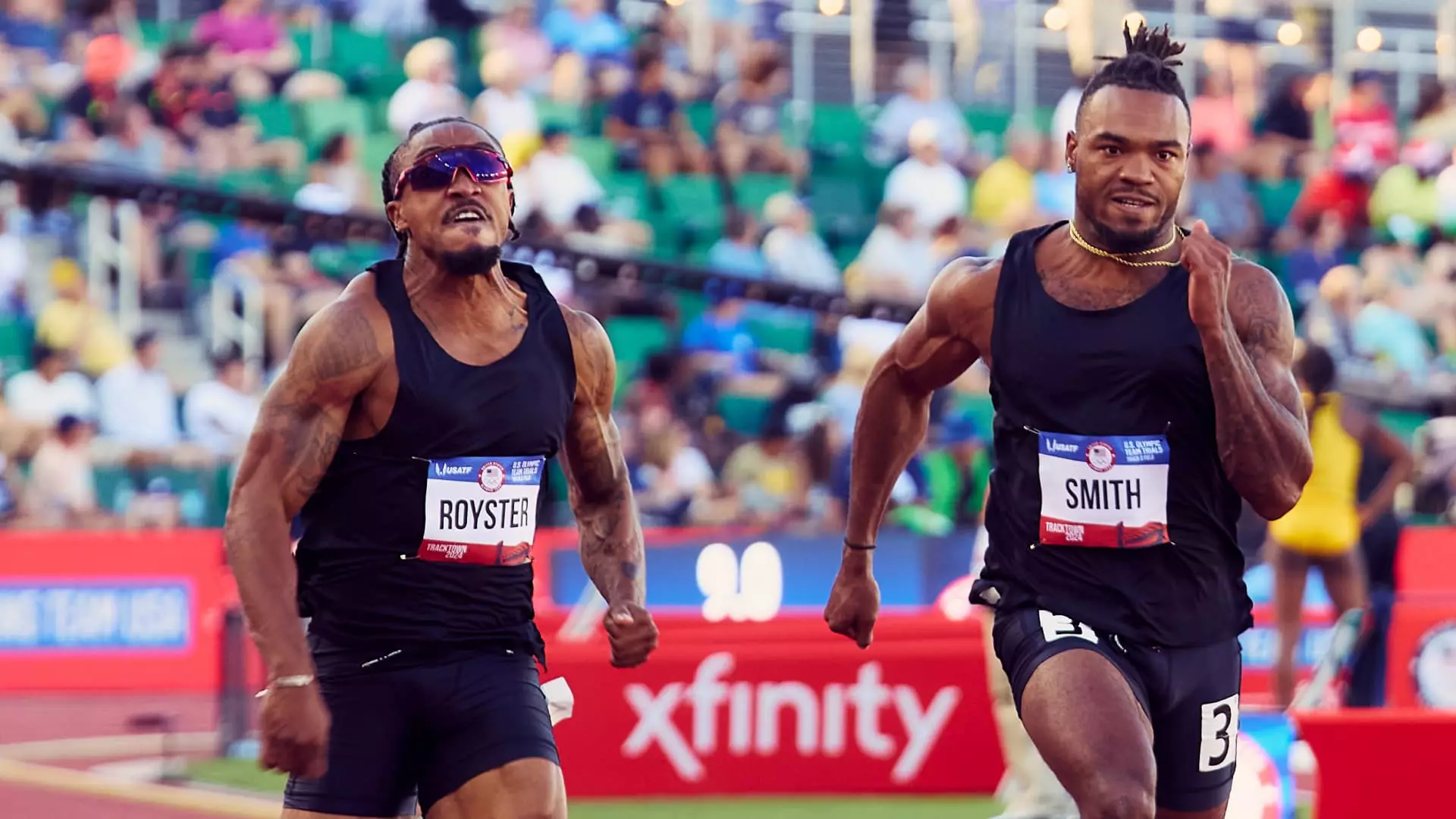At this year’s U.S. Track & Field Olympic Trials, there is a notable presence of unsponsored athletes standing out in their all-black, logo-less gear. These 35 athletes are part of Bandit Running’s Unsponsored Project, a unique initiative aimed at reshaping the traditional sponsorship model for professional athletes and providing support to emerging competitors in the field. Instead of having athletes purchase their own apparel adorned with major brand logos, Bandit Running offers these Olympic hopefuls all-black kits and warmups, along with short-term endorsement deals.
Bandit Running’s co-founder, Tim West, explained that the company is granting at least 35 two-week deals to unsponsored runners at the trials, which serve as a crucial opportunity for athletes to make a mark and potentially secure a spot in the U.S. Olympic team. These deals include unbranded apparel, financial support, and a valuable platform for athletes to showcase their talent. West emphasized the importance of redirecting a portion of brand budgets towards supporting amateur and sub-elite athletes to foster the growth of the sport as a whole.
The Unsponsored Project by Bandit Running comes with a unique feature – built-in release clauses that allow athletes to easily transition to traditional sponsorship offers if they arise during the trials. With the considerable costs associated with training, competing, and simply showing up to events like the Olympic trials, unsponsored athletes find themselves in a challenging position of self-investment. This presents an opportunity for brands to step in and provide much-needed support to these dedicated athletes.
Voices from the Field
Notable athletes like Courtney Okolo, a 400-meter runner and Rio Olympics gold medalist, have embraced the Unsponsored Project after being sponsored by Nike for four years. Okolo highlighted the financial struggles faced by many athletes in the absence of sponsorships, emphasizing the difficulty of juggling training, competitions, and financial responsibilities. The support provided by Bandit Running’s initiative has helped alleviate some of the burden, making it feel less daunting to pursue Olympic dreams without traditional sponsorship.
Overcoming Financial Hurdles
Athletes like Brandee Johnson, a 26-year-old track athlete working multiple jobs to support her training, view the Unsponsored Project as a lifeline towards achieving their Olympic goals. Johnson’s dedication to her sport, coupled with the financial challenges she faces, underscores the importance of alternative avenues like the Unsponsored Project in providing support and enabling athletes to focus on their training without the added pressure of financial constraints.
The Unsponsored Project by Bandit Running is not just about providing athletes with apparel and temporary endorsements; it represents a shift in the sponsorship landscape, advocating for greater support for amateur and emerging athletes in the track and field community. By empowering unsponsored athletes and offering them a platform to showcase their talent, initiatives like this contribute to the overall growth and sustainability of the sport, paving the way for a more inclusive and supportive environment for athletes at all levels.


Leave a Reply